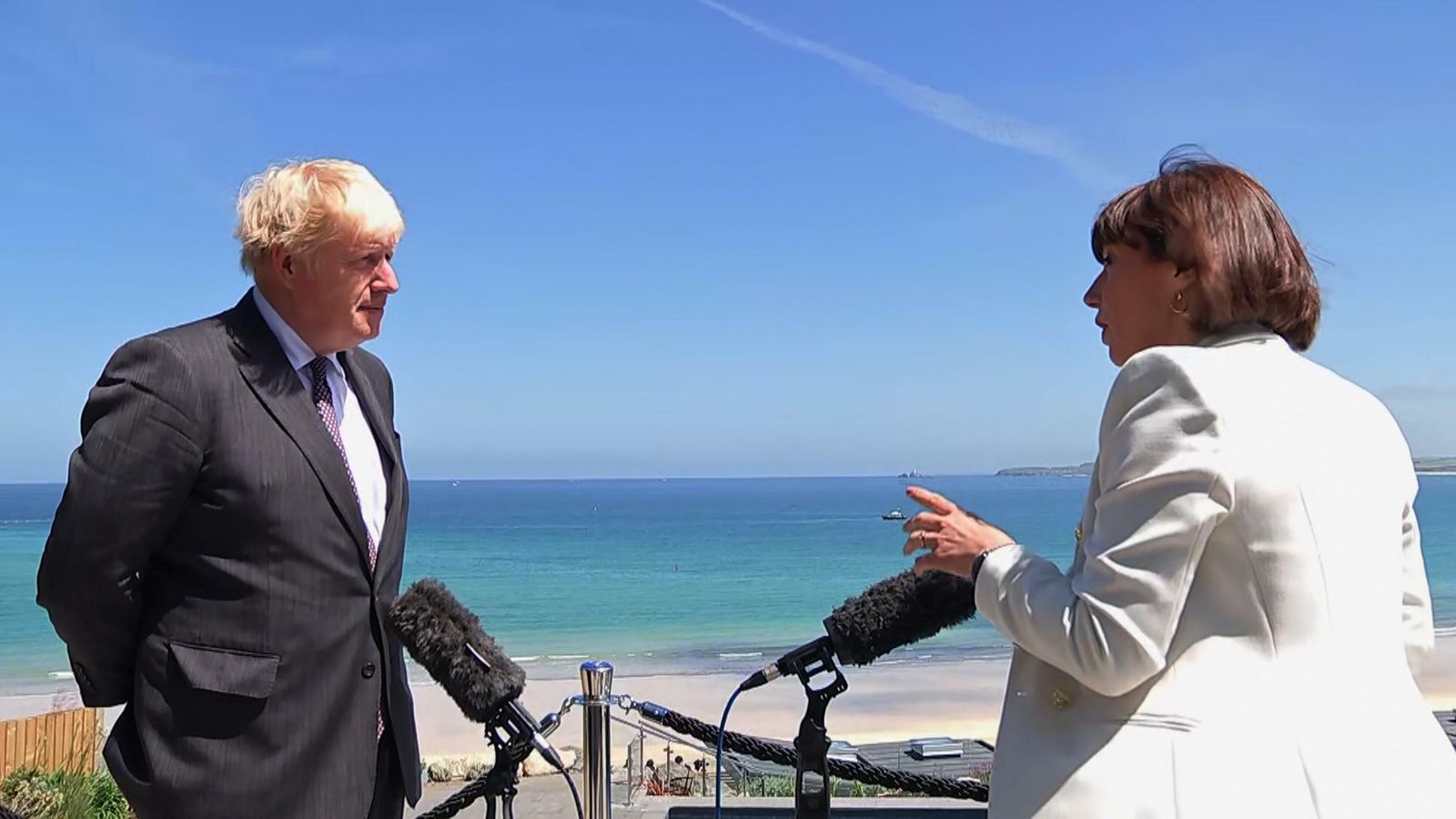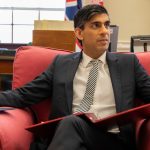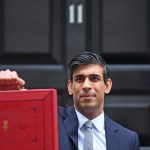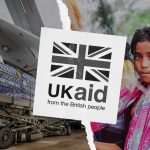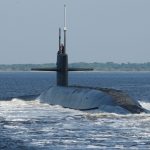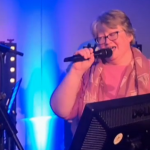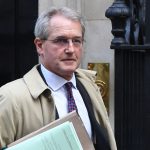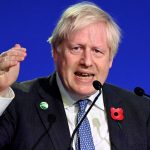The sun finally shone on St Ives on Saturday on the second day of the G7 summit.
But the prime minister delivered more stormy news, on both the domestic and international front, when I interviewed him between a bunch of head-to-head meetings with EU leaders and a plenary session on health.
At home, Boris Johnson‘s hopes of completely ending coronavirus restrictions on 21 June are all but lost.
In our interview, the prime minister admitted he was less optimistic than a couple of weeks ago after Public Health England confirmed that the Delta variant, which originated in India, is 60% more transmissible indoors than the Alpha – or Kent – variant.
Please use Chrome browser for a more accessible video player
“What we want to do is make sure that the roadmap is irreversible, but you can’t have an irreversible roadmap unless you’re prepared to be cautious – some of the data is still open to question, but we’ll be making an announcement on Monday,” he told Sky News.
A delay to the final unlock then all but confirmed by the PM – with the final relaxation being pushed back by up to four weeks as the NHS races to double jab millions more people to try to slow the spread of this new COVID strain.
“The objective now is to give that vaccination programme the legs, the impetus, the speed it needs to beat the spread of the virus,” he said.
With more delays despite the successful vaccination rollout, those completely fed up with restrictions can at least take comfort that the current gains – socialising indoors, football matches and galleries reopening with limited numbers – are still banked.
“What I can tell you is the scientists are agreed about one thing – they do not think there is any case for going into reverse,” Mr Johnson said.
But the knock-on effect of further delays is bad news for businesses and the hospitality sector desperate to return to normal, or in some cases – nightclubs – just to reopen again.
There will be no formal announcement from the PM until Monday, but there will be obvious questions about further financial support for sectors -as well as potentially fierce backlash from disgruntled MPs who believe that now is the time to learn to live with COVID-19 in the long-term rather than keep limiting our freedoms.
But these domestic difficulties are mirrored on the international stage too.
Tensions over post-Brexit trading arrangements in Northern Ireland have been bubbling just beneath the surface at this G7 summit, but also kept at bay by leaders acutely aware that President Joe Biden‘s first international summit must be a show of unity not conflict.
It’s notable that neither EU leaders – commission President Ursula von der Leyen and council chief Charles Michel – have sought to make public interventions since arriving in Cornwall.
So I was really surprised when the prime minister whipped up the rhetoric around this sensitive matter in our short interview.
He told me he would do “whatever it takes” to protect the integrity of the UK and was prepared to invoke Article 16 of the protocol which allows either side to take unilateral action if its implementation were to lead to “serious economic, societal or environmental difficulties”.
And he didn’t stop there, when I asked him if he thought a trade war was coming around the corner he replied: “I think it highly unlikely.
“But if I may say so, I’ve talked to some of our friends here today who do seem to misunderstand that the UK is a single country and a single territory. I think they just need to get that into their heads.”
For the host of such a sensitive and important summit – it was President Biden who announced this moment an inflection point for democracies – to unleash such provocative language at such a delicate time raised eyebrows to say the least.
As one EU diplomat said to me after the PM’s words ran out on Sky News: “I don’t understand… why so strong in the middle of the G7 summit?”
It will make for an interesting set of closing press conferences when the summit wraps up here in Cornwall on Sunday.
Mr Johnson had the very good fortune of being the politician to host the first G7 summit in years where all world leaders had a strong interest in making it work.
That he chose to detonate a small grenade is a sign perhaps of how discordant things are about to become.
